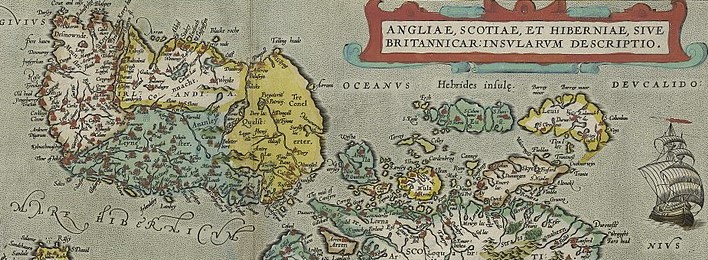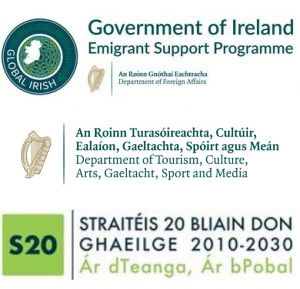The Department of Anglophone Literatures and Cultures cordially invites you to the workshop “Cultural Links between Irish and Scottish Gaelic”, organised as part of KREAS project.
The workshop is going to be concluded by a reading of contemporary prose and poetry in Irish and Scottish Gaelic with Czech translations (Saturday 12 November, 7 pm, Café Liberál, Heřmanova 6, Prague), featuring Peter Mackay, Alan Titley, and Christopher Whyte.
PROGRAMME OF THE WORKSHOP
Friday 11 November, Room 201, Faculty of Arts, nám. Jana Palacha 2, Prague 1
9:30 Opening of the workshop
Máire Ní Annracháin (University College Dublin)
Alan Titley (University College Cork)
Coffee break
Peter Mackay (University of St Andrews): “On Irish Poets Writing in Scotland”
Starting from the polyglot work of the Dublin-born and Skye-based Rody Gorman, who writes in Scottish and Irish Gaelic, English and his own invented deconstruction of English, Sweeney-ese, this will explore recent poetic connections between the two countries, including the diasporic Gaelic writing of Niall O’Gallagher, the Gaelic and Irish peregrinations of David Wheatley, and the ‘minoritized diasporic’ position of poets in English such as Alan Gillis, Miriam Gamble, Aoife Lyall and Rachel McCrum.
Christopher Whyte (independent scholar, Budapest)
13:00-14:00 lunch break
Caoimhe Nic Lochlainn (Dublin City University)
Radvan Markus (Charles University)
Coffee break
Gerard Cairns (independent scholar, Glasgow): “The Honourable Ruaraidh Erskine of Marr and the ‘Kings’ of Ireland”
My contention in this paper is to look at how Ruaraidh Erskine of Marr interacted with some key aspects of contemporary Irish culture by focusing on some imagined kings of that country. The paper will look at these points of contact and their impact on the ‘kings’ and their concerns, as well as on Erskine himself.
Contents
- The Gaelic League orthodoxy : the impact of Irish organization and thinking on Erskine’s own cultural and political journey with a focus on the influence of Arthur Griffith and the Hungarian model of dual monarchy and how notions of kingship became more prevalent in Erskine’s thinking.
- Pearse’s little king: Patrick Pearse had written for Erskine’s Guth na Bliadhna in late 1905 on education in the west of Ireland. A theme that Pearse would develop in a series of lectures as well as an Irish language play, The King: A Morality Tale which would develop notions of foster ship, monarchy, faith and sacrifice.
- The literary ‘kings’: looks at the Anglo-Irish school as a challenge primarily to the Gaelic League orthodoxy and secondarily to Erskine’s thoughts on Gaelic drama. I will look at Erskine’s motivators for his position and his real level of awareness of the debates and conflicts unleashed by the success of Ireland’s National Theatre.
- The high-king of Ireland: this section will look at two pieces of literature that were so against the grain of contemporary thinking. These were William Ferris’ The Gaelic Commonwealth and Erskine’s Changing Scotland and I will look at their respective timing and their rootedness in the 1904 orthodoxy.
- Kingship as a motif: an idea that would Erskine would never abandon and explains his Gaelic enthusiasm, his own faith and his own future literary endeavours in a Scottish and English context.
Petra Johana Poncarová (Charles University)
17:00 – 18:00 Concluding discussion
This event is supported by the European Regional Development Fund project “Creativity and Adaptability as Conditions of the Success of Europe in an Interrelated World” (reg. no.: CZ.02.1.01/0.0/0.0/16_019/0000734).

